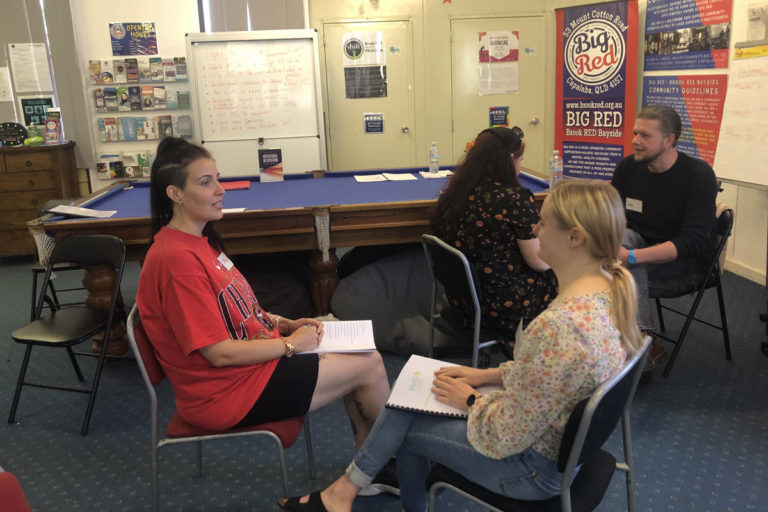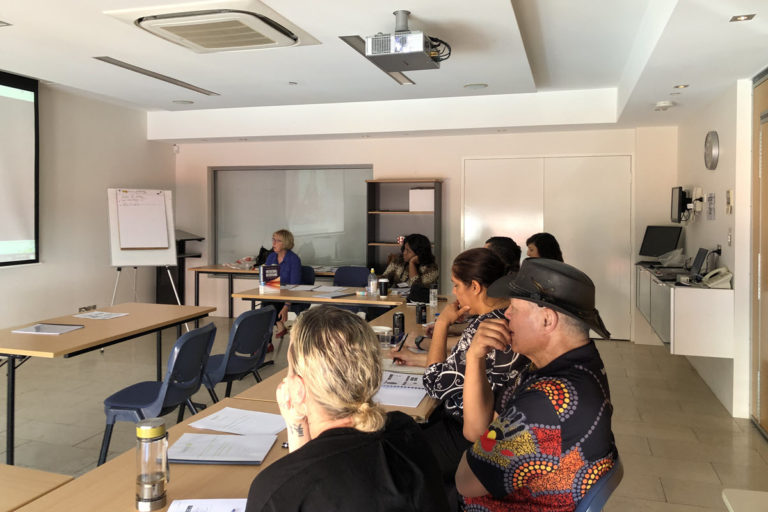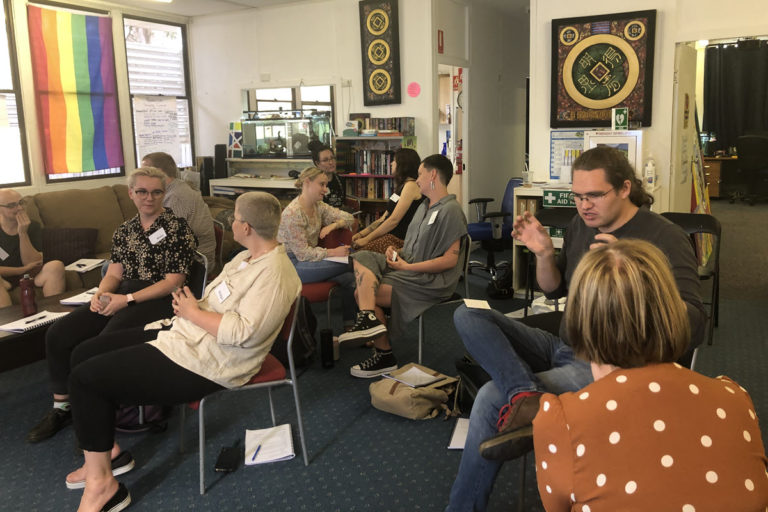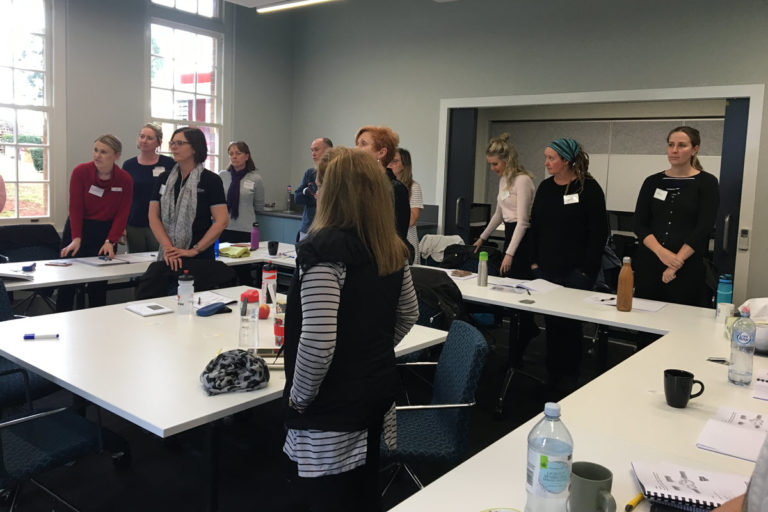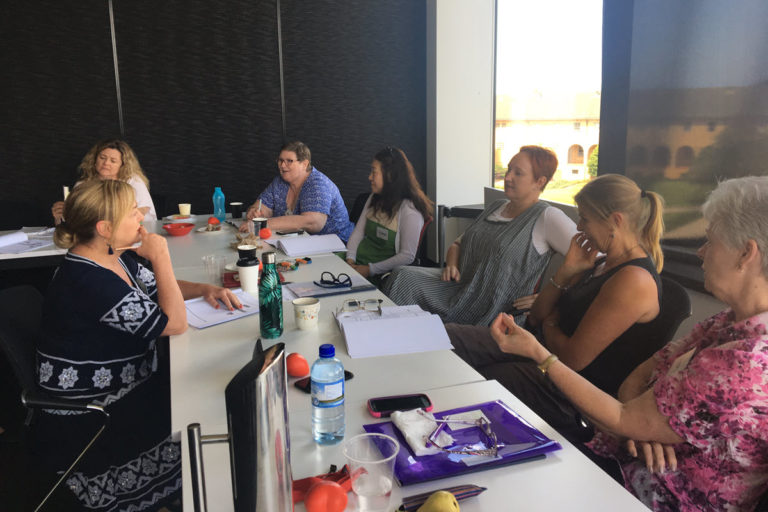Should Motivational Interviewing be a Foundational Skill for all Health Practitioners?
Using Motivational Interviewing (MI) enables clinicians to support and initiate behaviour change in the management and treatment of clients with chronic disease. Randomised control studies have demonstrated its particular usefulness in working with people struggling with HIV viral load, dental health, weight, sedentary behaviour and alcohol and tobacco use. MI has also been found to increase self confidence in clients to make changes to improve their health status (Van Buskirk & LoebachWetherell, 2014). Considering the current and estimated burden that chronic disease places on the healthcare system and the healthcare budget (World Health Organisation, 2013) is it now not time to consider MI as a foundational skill for all health care practitioners?
With clear evidence of MI’s efficaciousness, particularly in relation to chronic diseases, what is it that prevents this counselling style being taught and utilised to a high degree of proficiency for all health care practitioners? As Miller and Rollnick (2013) discuss, learning MI is an ongoing process that requires not only knowledge of the principles of MI, but also guided practice and feedback. Knowing about the theory of MI is fine, but being able to deliver MI effectively is even better.
Miller and Mount (2001) found that effective MI interventions decreased over time for practitioners who had only completed a one day training workshop. As well as training, developing a new skill such as MI takes time as well as supervision and coaching from more skilled colleagues. In a way it is similar to learning to drive a car. It usually takes several lessons and considerable practice to develop skills and build confidence before a learner is deemed ready to be tested for a drivers licence. And, of course, before getting behind the wheel a learner driver is required to demonstrate knowledge of the road rules.
Miller and Rollnick (2013), and the MI trainers at Veriti, are clear that introductory workshops are of benefit to people with little knowledge of or skill in MI. Beginning MI practitioners need to understand the philosophical beliefs inherent in the spirit of MI, what ambivalence might look and sound like, as well as how to engage with a client and view them as the expert in their own life. They need to observe MI in action which Veriti workshops achieve through examples from DVD recordings and live real life demonstrations (not role play), with participants in the classroom. From these demonstrations, participants experience the power of MI and can begin their own journey towards being an effective MI practitioner.
Integrating efficacious MI into practice also requires that organisations support their practitioners in using the skills effectively and with confidence. Miller and Rollnick (2013) recommend that organisations consider having on-site coaches or champions who not only provide supervision, coaching and support but also review the use of MI and identify practice gaps and lapses. To be able to effectively ‘grow’ an organisation’s use of high fidelity MI, practitioners need to be willing to have their client sessions reviewed, through tape recordings or observation, and to receive support when required.
So what needs to happen to make this proven intervention for assisting clients to change their behaviour, more readily utilised by health practitioners? The use of well validated tools to assess fidelity of MI practitioners could be useful. While there are a number of MI assessment tools, most lack psychometric testing (Gilla et al 2020). Organisational support for staff attendance at follow-up and advanced MI courses, in addition to introductory MI training workshops, will certainly help consolidate skills and build confidence. A bigger and also desirable step would be including MI in undergraduate and postgraduate health courses. At a postgraduate level this would include ensuring practitioners working with clients with chronic disease are competent in using the skills as well as demonstrating the spirit of MI.
The following video may be helpful in outlining the motivational interviewing approach for health professionals:
To learn more about about Motivational Interviewing and Veriti’s MI workshops, please contact us.
References
Gilla, I., Oster, C & Lawn, S. (2020). Assessing competence in health professionals’ use of motivational interviewing: A systematic review of training and supervision tools. Patient Education and Counseling 103, 473-483.
Miller, W. & Mount, K. A. (2001). A small study of training in motivational interviewing: Does one workshop change clinician and client behaviour? Behavioural and Cognitive Psychotherapy, 29, 457-471.
Miller, W. R. & Rollnick, S. (2013). Motivational Interviewing: Helping people change (3rd ed.). New York: Guilford Press.
Van Buskirk, K.A. & LoebachWetherell, J. (2014).Motivational Interviewing Used in Primary Care A Systematic Review and Meta-analysis. Journal of Behavioral Medicine. Aug; 37(4): 768–780.


